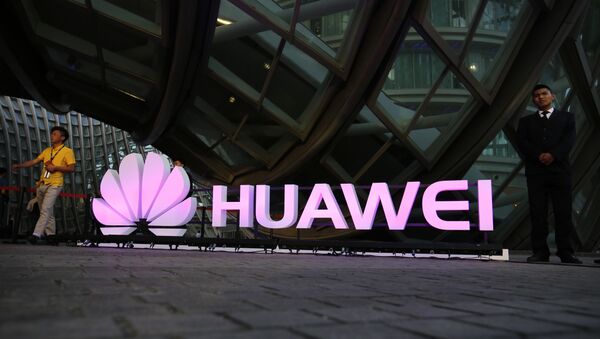Following an exchange of restrictive measures and back-and-forth threats between the two economic powerhouses, the US and China, the deputy mission chief at the Chinese Embassy in Pakistan, Zhao Lijian, turned to a weapon of another nature. He resorted to sarcasm to lambast US President Donald Trump over the recent moves against Chinese telecom giant Huawei on Twitter.
In a joking post on the micro-blogging platform, which Trump often uses to rip his adversaries, the Chinese diplomat put forth his theory for the US commander-in-chief’s hostility towards Huawei. According to him, the recent spat is all about the Chinese company literally cutting the American tech giant Apple “into pieces”. He also made sure that the message got to Trump, tagging his account.
BREAKING: It has been just revealed why @realDonaldTrump hated a private company from China so much that it went so far by announcing a national emergency. Look at the logo of Huawei. It has cut APPLE into pieces… pic.twitter.com/KOXstlAsja
— Lijian Zhao 赵立坚 (@zlj517) May 20, 2019
The joke prompted debate in the comments. Some applauded Zhao’s wit.
Epic!! 👌😂😂😂
— Adeel Ahmed Khan (@AAKvirgo312) May 20, 2019
Chinese ambassador on full swing today.
— Tahir Naqvi (@Tahir51116030) May 20, 2019
Gift from my side (Chinese made) 😂😂 pic.twitter.com/yc2EaXlm5l
Others mocked the alleged gaffe by the diplomat, as some commenters claimed that he had used an iPhone to post the joke.
Do you know, we all can see you’re using an iPhone while promoting huawei? pic.twitter.com/uBOuIuMv1X
— Siasat.pk (@siasatpk) May 21, 2019
But he himself using iPhone.
— Lucifer (@TweetovSATAN) May 21, 2019
Hypocrisy or madness?
The US-Chinese spat over Huawei climaxed recently after reports that American tech companies Intel, Qualcomm, Xilinx, and Broadcom had cut off the supply of their software to the Chinese giant, while Google suspended its business operations with it, as well as access to updates for the Android operating system.
The reports followed the US Department of Commerce blacklisting Huawei, barring the Shenzhen-based company from acquiring technology or components from American firms without the government’s consent. However, it later restored Huawei's ability to maintain its networks under a temporary general license, which lasts until 19 August, as Reuters reported on 20 May.
Separately, US President Donald Trump has ordered that a plan be devised to ban American companies from using telecommunications equipment made by foreign manufacturers that are “deemed to pose a national security risk”.
READ MORE: Countries Resorting to Protectionism 'Don't Want Anything From Huawei' — Pundits
Amid the ongoing trade row between the two countries, Huawei has faced allegations that it is linked to the Chinese government and even involved in espionage on its behalf, something that the company has vehemently denied. The US has been pushing for the European Union to ban the Chinese company from its broadband network.
Some US allies have complied, as apart from the US, New Zealand and Australia have already banned Huawei from developing their 5G networks, citing security threats. But some, including the UK, India, and the United Arab Emirates, have been reluctant to follow suit, recent reports suggest. Germany, Italy, France, Austria, Switzerland, and Spain have resisted the pressure so far.


